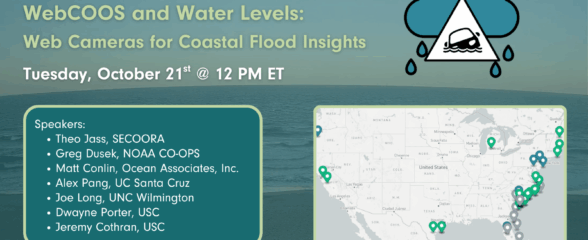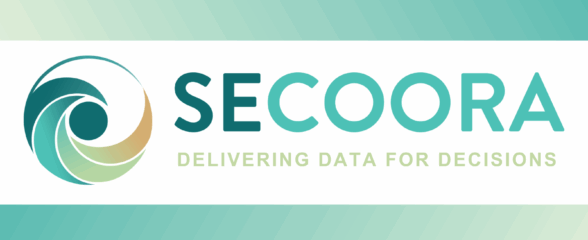Robert Weisberg, SECOORA Principal Investigator, and his affiliates were recently published in the journal Harmful Algae*, Volume 38. The paper, “Why no red tide was observed on the West Florida Continental Shelf in 2010,” analyzes why Karenia Brevis, Florida red tide organism, did not reach the Florida coastline in 2010.
They concluded that the lack of red tide along the west coast of Florida in 2010 was due to anomalously large and protracted upwelling of nutrient-rich waters of deep ocean origin caused by Loop Current and eddy interactions with the shelf slope1. Both the physics of the circulation and the biology of the organism are necessary conditions for a K. brevis bloom to occur near shore; neither alone, however, is a sufficient condition1. This paper reinforced the growing recognition that we need an interdisciplinary and integrated ocean observing system.
*Harmful Algae is a multi-partner project that was funded by the National Oceanic and Atmospheric Administration’s ECOHAB Program and included 14 research papers from seven institutions. The research team studied four red tide blooms caused by the harmful algae species K. brevis in 2001, ’07, ’08 and ’09, plus the non-bloom year 2010. Their goal was to understand which nutrients supported these red tides and the extent to which coastal pollution might contribute; helping reveal what drives red tide in southwest Florida2.
—-
Image credit: Florida Fish and Wildlife
1 Weisberg, Robert H., Lianyuan Zheng, Yonggang Liu, Chad Lembke, Jason M. Lenes, and John J. Walsh. “Why No Red Tide Was Observed on the West Florida Continental Shelf in 2010.”Harmful Algae 38 (2014): 119-26. Science Direct. Web. http://www.sciencedirect.com/science/article/pii/S1568988314000572.
2 http://mote.org/news/article/nutrients-that-feed-red-tide-under-the-microscope-in-major-study
Related news

SECOORA Webinar | WebCOOS and Water Levels: Web Cameras for Coastal Flood Insights
On October 21st at 12 PM ET, SECOORA is hosting a webinar with investigators from the Webcam Coastal Observation System (WebCOOS) project team and the WebCOOS Project Manager. Web cameras are a low-cost technology that can be used to document flooding impacts to coastal communities. Register here.

SECOORA Funding Opportunity Announcement: Letters of Intent Solicitation
SECOORA will submit a coordinated regional proposal in response to the anticipated FY 2026 Implementation of the U.S. Integrated Ocean Observing System (IOOS) funding opportunity. Letters of Intent to be considered for inclusion in SECOORA’s full proposal are due September 9, 2025.

SECOORA Hosts the First Surface Elevation Table (SET) Community of Practice Virtual Workshop
The SECOORA SET Workshop was virtual on July 17, 2025. More than 50 Community of Practice members and stakeholders joined this collaborative workshop to discuss SET monitoring, coastal resilience, and data-driven decision making in the Southeast.
